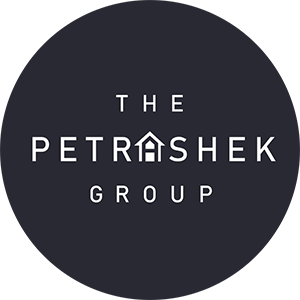
01 Apr Real Estate Vocabulary 101
The Index for Confusing Real Estate Vocabulary
Real Estate Vocabulary or ‘shoptalk ‘ can be confusing, especially to first-time home buyers or those who haven’t sold or bought a house in years. When working with clients I aim to not only help them buy or sell a home but make sure they understand the process every step of the way. Understanding the options and Real Estate process ensures I empower people to make the best decisions for themselves. I’ve compiled a list of commonly used words in Real Estate. If there are terms I didn’t list feel free to contact me personally. My daughter is a teacher and always jokes my job is half selling houses and a half teaching Real Estate 101!
Adjustable-rate Mortgage
Fixed and adjustable rate are the main two types of mortgages. Fixed means your interest rate will always be the same. In an adjustable-rate mortgage, your interest rate can change at five, seven, or ten-year intervals. This is a bit of a gamble as your rate can increase or decrease.
Amortization
This is a process where you pay off the interest and principle of your mortgage simultaneously. Part of your mortgage payment will go towards the interest and the rest will go towards the principle.
Appraisal
Appraisals are done for the lender or bank that is lending money to the buyer to ensure the home’s value. Appraisers will inspect the home along with comparing recently sold homes of that style in the neighborhood to get an accurate value of the property.
Assessed Value
This is another property value evaluation. A public tax assessor conducts this value assessment to determine the city and state taxes needed on the home.
Closing
Closing is the final step in the home buying/selling process. Both parties sign the final documents at this meeting. The sellers will hand over the house keys while the buyer makes the down payment and pays their closing costs.
Closing Costs
In addition to the price of the home, there are closing costs. These are typically two to five percent of the purchase price excluding the down payment. Closing costs cover the title insurance, loan processing costs, and other miscellaneous costs. While both sides typically pay their own, in some transactions the seller agrees to pay part or all of the buyer’s costs.
Comparative Market Analysis
This is a well-named term. A Comparative Market Analysis (CMA) estimates your home value based on the sales prices of similar homes in your area. The homes used as comparables will most likely be similar in size and style. Only properties that have been recently sold or currently listed will be used.
Contingencies/Sold Subject to Contingency
Contingency means there are one or more conditions that need to be met. Examples include a loan being approved, the appraisal being close to the sale price, or the successful close of the buyer’s previous home.
Dual Agency
Dual agency is when the same brokerage is representing both the buyer and seller in the same transaction. This is still true when the same or two separate agents are working on this transaction but with the same brokerage.
Earnest Money
Earnest Money is referred to as a “good faith gesture”. This money is usually 1%-5% percent of the sales price and is placed into escrow to show a buyer is serious about purchasing the home. Earnest money can be forfeited to the seller in some scenarios if the buyer does not commit to the transaction. If all goes smoothly, the earnest money is counted toward the buyer’s down payment.
Equity
Equity is how much of your home you actually own. In other words, it is how much of the principal on your home that you have paid off. The more equity you have the more financing options and flexibility you will have. To give a real-world example of equity, let’s say your home costs $200,000 and you’ve paid $50,000. Your equity is whatever you’ve paid off. In this case, it would be $50,000.
Escrow
Escrow is a third-party account that holds money for multiple purposes. Sellers can add money for expected home repairs into this third parties’ hands to be used after closing. Buyers will place their earnest money into an escrow account. Basically, any money exchange done before the final closing of a transaction is placed into escrow and a third party handles the money ensuring its protection during the Real Estate process.
FHA Mortgage
An FHA mortgage is a mortgage insured by the Federal Housing Administration. A benefit includes down payments as low as 3.5% for people with a credit score of 580 or higher. A downside is borrowers must pay mortgage insurance premiums to protect the lending if the borrower defaults on payments.
Fixed-rate Mortgage
This is the opposite of an adjustable-rate mortgage. Fixed-rate mortgages have an interest rate that never fluctuates up or down. This offers security when interest rates rise, but also means falling interest rates won’t benefit people with fixed-rate mortgages.
Foreclosure
This is when a homeowner has stopped paying their mortgage payments and the bank repossesses the house. The bank will then try to sell the home to regain the balance not paid by the borrower. Foreclosure homes cost less but come with added risks such as poor condition, drawn-out purchase agreement negotiations, and unseen issues with the home that the bank doesn’t know about and therefore can’t disclose.
Inspection/Sold Subject to Inspection
Inspections are optional after an offer is made and accepted. They usually cost between $300 – $600. The inspection covers plumbing, foundation, appliances, and making sure everything is up to code in the house. Both safety and cosmetic concerns are listed by the inspector. This information helps inform both parties, especially the buyer. A buyer can ask the sellers for money towards closing costs or repairs done to the home so long as the home isn’t being sold as-is.

Listing
This term simply means a home is for sale and is “listed” in a database marketing houses to buy.
Mortgage
A mortgage is a loan specific to Real Estate. It is an exchange with a lender for money with the promise the lender can seize the property if payments stop.
Mortgage Broker
This is the third party that is responsible for managing the deal between a lender and borrower.
Pending
Pending is the status given to a home when it has an accepted offer on it and is working towards closing. A pending house is different from a sold house because it is still available for purchase if the current transaction falls through.
Pre-approval Letter
This letter states how much the lender/bank will lend the buyer. This is recommended to have before searching because it helps determine what price range a buyer can afford. Also, most listing agents will require a copy of this letter when making an offer on their listing.
Principle
The principle is the amount of money borrowed to purchase a house. This is the amount of your loan not including interest. Paying the principle off builds equity in a home.
Private Mortgage Insurance
Also known as PMI. The buyer pays this insurance premium to the lender to protect the lender from mortgage default. The insurance payments usually end when the buyer reaches 20% equity on their home.
Purchase agreement
This is a legally binding contract that outlines the terms and conditions surrounding the sale or purchase of a home. This ensures there is no misunderstanding on what either side is liable for and there are legal repercussions if the agreement isn’t upheld.
Real Estate Agent
A Real Estate agent is a licensed professional who works under a broker to assist the buying and selling of homes. All agents are required to be licensed with federal and state and take continuing education to uphold their licenses.
Real Estate Broker
This is a Real Estate agent who has passed the state broker’s exam and reached a minimum number of transactions. While a broker may work independently, an agent must work under a licensed broker to represent clients.
Realtor
A Realtor is a Real Estate agent that is a member of the National Association of Realtors. The NAR holds its members to a specific code of ethics and standards. This ensures the quality and trustworthiness of a Real Estate agent.
Refinancing
Refinancing is when you more or less replace your old loan with an entirely new loan. The new loan comes with different rates and payment structure. The new loan can get homeowners lower interest rates and lower monthly payments as well as the overall debt owed.
Selling/Buyer’s Agent or Listing/Seller’s Agent
The “selling” agent is the Realtor representing the buyer. Representing the seller is the listing agent.
Title Insurance
This insurance covers research into public records to make sure the title, aka the home, doesn’t have any conditions or liens attached to it. If you purchase a home without title insurance, you may be blindsided later on by a lien on your new house. A creditor claiming the property owner owes them money can place a lien on the home.
Townhome/Homeowners Association
Purchasing a townhouse, condominium, or single-family home in a planned neighborhood requires you to join the Homeowners Association (HOA). This means monthly or yearly fees that go towards services covered by the association. You will also have to abide by the HOA rules and regulations. Read the association’s guidelines carefully before selling or buying a home apart of an HOA.
Now that you know Real Estate vocabulary, you are ready to dive into selling or buying your house. Be sure to read some of my other blog posts for more advice.
1 What To Expect With Closing Costs
2 What To Look For In Your Association Resale Disclosure Documents
3 What Buyers Can Expect After A Home Inspection
If you have any questions, please let me know, I’m always happy to help. You can give me a call at 612-889-6496 or send an email to [email protected].
Get a Virtual Price Opinion from Sheryl!




